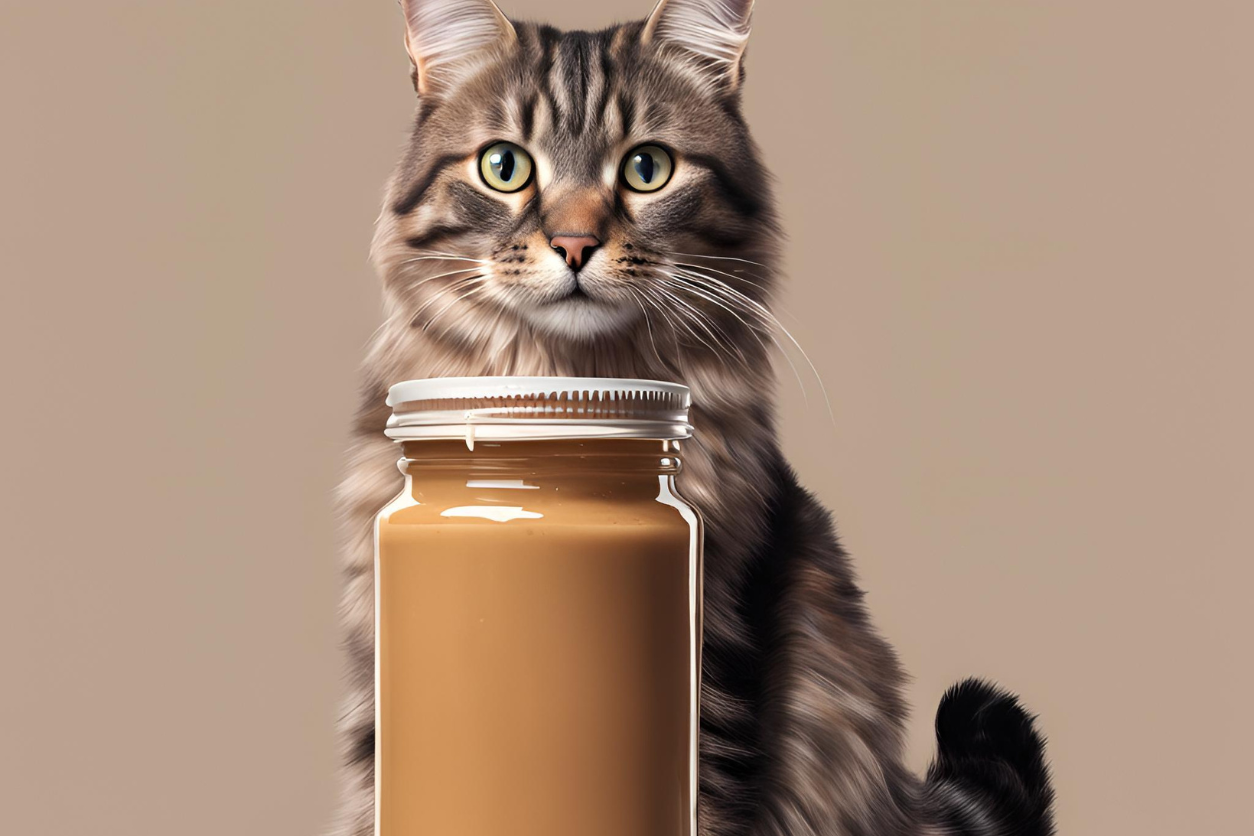Can Cats Eat Peanut Butter? The Answer Might Surprise You

As a cat owner, you may have wondered if your feline friend can indulge in a few licks of peanut butter from time to time. After all, cats are known for their curious and adventurous nature when it comes to food. When it comes to this particular food, however, the answer might surprise you.
In this blog, we will explore whether cats can eat peanut butter and what you should consider before offering it to your furry companion. From allergies to dangerous additives and sweeteners, here are the most important things to know about giving peanut butter to your cat.
Factors To Consider Before Giving a Cat Peanut Butter
While the short answer is that cats can technically eat peanut butter, it’s not recommended as a regular treat or mixed with dry cat food or wet food as part of their diet. Though it is safe for cats in small amounts, there are several factors to consider before feeding it to your furry friend.
Allergies
Peanuts are known to be one of the most common allergens for cats, so some felines may have an allergic reaction to peanut butter. Allergic reactions in cats can range from mild symptoms such as itching, sneezing, and gastrointestinal upset to more severe symptoms like difficulty breathing and swelling of the face, lips, or tongue. If your cat has never been exposed to peanut butter, it’s best to consult your veterinarian before offering it to rule out any potential allergies.
High-Fat Content
Peanut butter is high in fat, and cats are obligate carnivores that require a diet high in protein and low in carbohydrates and fat. Feeding cats a high-fat diet can lead to weight gain, obesity, and other health issues such as pancreatitis. Additionally, excessive fat intake can cause gastrointestinal upset in cats, leading to diarrhea or vomiting. It’s important to keep in mind that a small amount of peanut butter as an occasional treat is acceptable, but it should not be a regular part of your cat’s diet.
Additives and Sweeteners
Some commercial peanut butter brands may contain additives and sweeteners such as xylitol, which is toxic to cats. Xylitol is an artificial sweetener that can cause a sudden release of insulin in cats, leading to a potentially life-threatening drop in blood sugar levels. If you are considering giving your cat some peanut butter, it’s crucial to always read nutrition labels and choose a peanut butter brand that does not contain harmful additives or sweeteners.
Choking Hazard
Peanut butter has a thick and sticky texture, which can pose a choking hazard for cats, especially if they try to lick it off a spoon or their paws. Cats have a different tongue structure compared to humans, and they are not capable of efficiently licking off thick substances. If your cat consumes a large amount of peanut butter or tries to lick it off their paws or a spoon, it can potentially cause choking or blockage in their throat or gastrointestinal tract.
Final Note!
In conclusion, while cats can technically eat peanut butter, it’s not recommended as a regular treat or part of their diet. If you still want to offer peanut butter to your cat, it’s crucial to consult with your veterinarian and choose a natural, unsweetened brand without any harmful additives. Always feed peanut butter to your cat in moderation and monitor for any adverse reactions. Your cat’s health and safety should always be a top priority, so it’s best to stick to a balanced and species-appropriate diet for your feline friend.
Your Pet’s Best Interest, Always
At Pet Institute, we take pet care seriously. We're dedicated to transparency, impartiality, and the well-being of your pets in every article, review, and recommendation we provide. Our unwavering commitment to these principles ensures that you, our valued reader, always receive reliable and unbiased information. Let us be your trusted guide in the world of pet care and companionship.